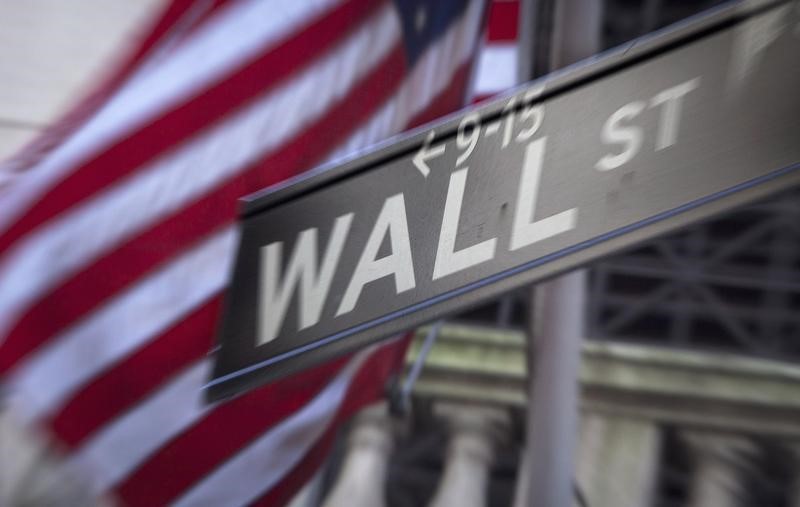By Emily Stephenson
WASHINGTON (Reuters) - Five years after President Barack Obama slammed Wall Street "fat cat" bankers, some of the nation's biggest banks this week successfully lobbied Congress to roll back a hotly debated provision in the 2010 Dodd-Frank financial reform law.
The question is whether bankers can keep up their winning streak.
The early view is that Wall Street, insurers, and companies that deal in complex financial instruments will secure targeted victories in 2015, especially with Republicans in control of the Senate.
But Democrats who chafe at the idea of bank handouts will block any measures that could gut Dodd-Frank, one of Obama's signature legislative accomplishments.
"I don't think Dodd-Frank is, in whole, going anywhere," said Tony Fratto, who worked in the Bush White House and now is at Hamilton Place Strategies in Washington.
Republicans in the U.S. House of Representatives included in a $1.1 trillion federal government spending package a provision easing a Dodd-Frank rule that forces Wall Street banks to push out certain swaps trading into isolated units.
Republicans also attached to a popular terrorism insurance bill a Dodd-Frank provision saying "end-user" businesses such as energy companies would not need to post collateral for certain risky trades.
The Democrat-controlled Senate had not passed either bill on Friday afternoon, but appeared likely to do so.
Lawmakers also on Wednesday gave the Federal Reserve more flexibility in writing certain requirements for insurance companies such as Prudential Financial (N:PRU).
These wins would have been unthinkable a few years ago, when Obama pointed to the Occupy Wall Street protests as a sign of Americans' frustrations with the after-effects of the 2007-2009 financial crisis.
On Thursday night, Obama was forced to lobby indignant Democrats to support the funding bill in spite of the Dodd-Frank rollback provision, even as JPMorgan Chase (N:JPM) Chief Executive Jamie Dimon was also calling Democrats to support the bill.
"I don't think it's accurate to describe the president and anybody from Wall Street being on the same side of this issue," White House spokesman Josh Earnest told reporters on Friday, when asked if Obama was more aligned with big banks than House Minority Leader Nancy Pelosi.
'FIRST CRACKS'
Some Republicans on Friday were taking a victory lap. "Yesterday showed the first cracks in the wall for Dodd-Frank," Saat Alety, a spokesman for Republican Representative Ed Royce of California, said about the spending bill.
Bank lobbyists are taking a more reserved view, saying it will be difficult to overcome Obama's veto power for major blows to Dodd-Frank. "The battle lines, so to speak, will continue to be drawn," said James Ballentine of the American Bankers Association.
Lobbyists said alterations with bipartisan support or a thumbs-up from regulators could move forward.
That could include changing the asset threshold at which banks are considered big enough to destabilize markets if they fail. That could provide medium-sized banks such as Regions Financial Corp (N:RF) relief from tough capital rules.
There is also broad support for changes to the bankruptcy code that would be tailored to banks. Currently, Dodd-Frank lays out a path for unwinding failing banks that Wall Street supports but that Republicans find unworkable.
Further, Congress may act to exempt small banks from a proprietary trading ban known as the Volcker rule, to change the way mortgage rules treat certain fees, and to give some relief to Wall Street banks' international swaps trades.
PUSHOUT WARS
Democratic Senator Elizabeth Warren this week said a vote to roll back the swaps push-out provision was "a vote for future taxpayer bailouts of Wall Street."
Others say it's more of a symbolic victory for Wall Street. The swaps push-out provision was a late addition to Dodd-Frank championed by former Democratic Senator Blanche Lincoln, who was in danger of losing her seat.
The idea behind the measure was that banks such as Citigroup (N:C) and JPMorgan were conducting risky swaps trading in the same units that enjoyed federal backstops, and taxpayers should not be on the hook if trades soured.
But banks claimed it was more dangerous to push out the activity to less-regulated units. And the provision captures only about 5 percent of banks' derivatives books instead of all swaps trading.
White House Spokesman Earnest said on Friday there was not consensus about the importance of the push-out provision.
Robert Holifield, her staff director on the Senate Agriculture Committee, said on Friday that in hindsight, the provision was not the most crucial derivatives section in the law.
"The important reforms are still very much intact," he said.
(Reporting by Emily Stephenson, with additional reporting by Sarah N. Lynch, Roberta Rampton, Lauren Tara LaCapra and David Henry; Editing by Karey Van Hall and Andrew Hay)
